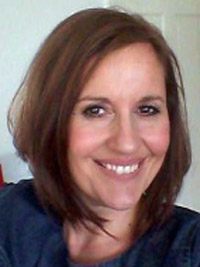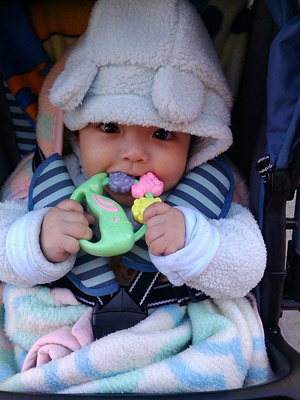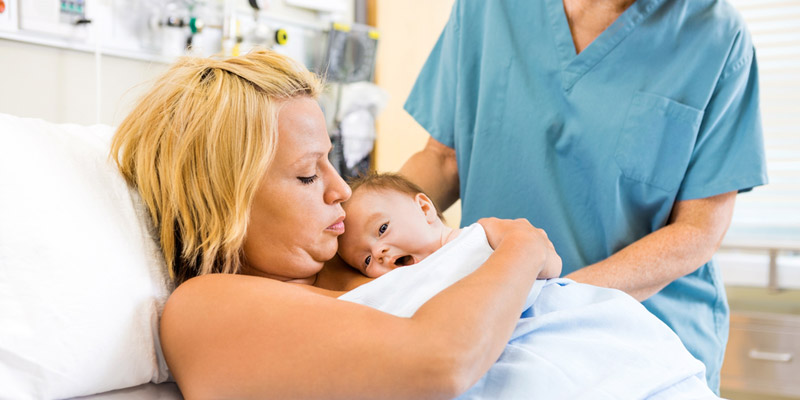Angela Yates is a midwife employed by the Leeds Teaching Hospitals Trust. She began her career as a prison officer in the Prison Service, before moving on to the Probation Service, and then deciding to retrain as a midwife. Angela enrolled in an Access to Higher Education course on a Nursing and Midwifery pathway before joining a Midwifery Studies degree at the University of Huddersfield in 2012.

“…The best part is when someone has had the birth that they wanted. You might have been there as a support and advocating for that woman’s needs – to see the look on her face when she gives birth and you can see she’s thinking, “I did this.” And that elation that they’ve done it…”
Midwifery – a vocation I could always see myself in
I’ve been interested in midwifery, probably for the last 20 years. I decided it was a role that I thought I should be in. It was a vocation that I could see myself in when I was in my early twenties, but life took over and I had a daughter, so I shelved those ideas. That was when I went into the criminal justice setting.
I joined the Prison Service in my mid-twenties. Part of my role was to do the day to day care of the women in a female prison. So unlocking doors, overseeing the day to day activities within the prison regime – those kind of things, but then I found myself intrigued by the cognitive behavioural programmes that were coming out in the 1990s, so started facilitating group work in the Prison Service.
Moving to the Probation Service prior to becoming a midwife
This led me on to career progression because I wanted to manage those courses and be involved in practice development for those cognitive behavioural programmes, which wasn’t available to me in my role as a prison officer. So I moved over to the Probation Service in order to be able to practice develop staff and develop the programmes. I spent 11 or 12 years there, moving through career progression, still facilitating some of the group work – general offending behaviour programmes, employability and getting offenders back into to work, and managing offenders with substance misuse problems.
I helped to develop a specified activities programme called “Responsible Road Users,” which is still available within West Yorkshire.
I then went on to line manage the team – 17 members of staff, at the time, that were all group work programme facilitators. So I had line management responsibility for those and other remits at area managers’ level within West Yorkshire Probation Service, as it was then.
That was prior to becoming a midwife.
Passionate about parenting

Maybe given other people’s perceptions that there might be negativity around being a young mum, and that perhaps young mums didn’t fare as well as those that were in two parent families with XYZ material things, I was going to prove people wrong. For me those material things didn’t matter as long as I was able to raise my child the best way that I could. I was passionate about parenting, about consciously parenting – how we parent potentially having a knock-on effect on our children.
Midwifery – a place where I would sit comfortably
Because I wasn’t then able to go back and do a degree, every few years the idea would come back to me. Why didn’t I go into midwifery? Why didn’t I go back to do that? And the feeling that I got about parenting, about safeguarding, about the public health role of the midwife – all of these things spoke to me, like it was a place where I would sit comfortably.
I was working in the Prison Service with women that were vulnerable. They were perhaps living out the consequences of parenting that hadn’t gone well, or the consequences of making the wrong choices in life or not having great life chances. Working with women and being involved in families where there were difficulties and those kinds of complexities made me think, “Well, maybe I can help here.”
Supporting women in a vulnerable and intimate part of their life
So I went from from looking after women at one end of a spectrum who were in the criminal justice system perhaps through choices and life chances / lifestyles, to looking after women at the point of becoming a parent. Midwifery to me is about pre-conception, pregnancy and birth through to the postnatal period and beyond. I think midwives, being present in this crucial period in time, can instil a kind of passion for parenting throughout the perinatal period – encouraging women to take care of themselves, to forge early bonds with their unborn child – may have an impact on parenting. That, in a nutshell, is why I’m a midwife.

You get to see them in their relationships, when their relationships are perhaps at their most vulnerable, so for example if there is domestic abuse in the relationship. Not many health professionals get to see that. It’s a huge responsibility.
My route to qualification – a massive leap of faith
Because I hadn’t done any recent academic study, there were a few options available to me – a foundation degree at a university, distance learning courses or to go on an Access to Higher Education course (which it the route I chose, given the locality). I had a very young family at the time – my son was only 18 months old at this point.
The course was three days a week, a few hours a day, and very tough in the amount of the workload. The scary thing was when I decided to leave the Probation Service to become a midwife, I didn’t have a place at university, so I had to completely and utterly believe that I would get a place at university, given that I knew how hard placed were to come by. So I took a massive leap of faith, took voluntary redundancy to go to college, to then apply for university that autumn.
Sheer determination
Through sheer determination, I got a place at university through my first round of applications.
I went to Huddersfield University, which is such a great uni. Having looked at all the other universities available to me – I think I applied for five – on their open day Huddersfield just completely blew me away. That was it. I knew I didn’t want to go anywhere else. The tutors, who are all midwives are fantastic.
Challenges of returning to study as a career-changer
The focus for me was how I could do this without too much detriment to my family and my relationships within it. I was conscious that I didn’t want to be absent, particularly as my son at that time was only 18 months old and I had a daughter who was about to embark on her first degree.
The biggest priority was maintaining the relationships, which I knew were going to be challenged, because I knew that I would have to study whist the children were in bed. Also being out of the home and organising childcare was crucial. Family issues were the main thing. Financially, of course not having my salary, which was a good salary, to contribute to the budget was a stretch.

All of those aspects financially, managing relationships, making sure that the children were happy and we were able to facilitate their social interactions, so Cubs, Brownies, Beavers, clubs and things like that. We tried to keep the status quo as close for them to what they needed. That was the biggest challenge.
Progression in careers in midwifery post qualification
With career progression, there is so much variety of what you can do if you want to do it. Lots of midwives will say, “I just want to be a midwife. This is all what I want to do. I want to facilitate births. I just want to be with women,” and that’s fantastic. It’s a requirement that you keep updated with your skills and you revalidate your registration to practice as a midwife every three years – and that includes 450 hours of hours clinical practice, 35 hours of continuous professional development with participation that is linked to the Nursing and Midwifery Council (NMC) Code (of conduct), plus other stipulations – all of those are a given. You have to do those.
It’s not a given that you have to progress on to a full Masters degree. There are some Master’s level modules for example if you want to be a mentor to students. Part of the Code requires midwives to support and encourage others’ learning. There are also Master’s level qualifications that you can do in relation to clinical skills – I hope to complete these in the future.
Enrolling on my higher level Master’s qualification

If I wanted to teach in university, which is something that I do fancy doing, given that I really enjoyed facilitating group work before, most universities want a Ph.D. qualification now or at least for you to be progressing through that for you to teach on a undergraduate course – that seems a way in to the future!
Specialist midwifery roles, international opportunities and leadership
There’s different settings that you can work in – there’s the hospital facilitating birth, there’s prenatal and postnatal care, there’s transitional care where those women and babies who aren’t ready to go home (so sort of a half-way house where they might need an enhanced level of recovery, so there’s those kind of hospital settings) and working in community where you may be attached to a GP’s surgery where you facilitate the antenatal / postnatal clinics and home visits.
Alongside that there can be specialist midwife roles. I know in Leeds we have Haamla Service, which includes an FGM specialist clinic – which is great to have available in the region – teen pregnancy, perinatal mental health, safeguarding, substance misuse, and there’s midwife sonography roles. There’s a whole raft of things that are out there if you want to develop.
The Royal College of Midwives has a global midwifery twinning project. Experienced midwives have been out to twinning projects in developing countries – Malawi, Nepal, Uganda, where you can then facilitate the teaching of midwives. There’s just so much out there that midwives can do to share their experience and learning.
You can progress through the other bands into leadership, co-ordinating care on labour wards etc. The NHS Leadership Academy has some great resources and ideas for further development. There’s research midwife posts if you didn’t want to be in a specific hospital role or the clinical, traditional roles of the midwife, alternatively some midwives make sideways move into health visiting.
There are scholarships out there – Mary Seacole Awards, Iolanthe Awards and things like that, where you would perhaps carry out a piece of research that directly benefit people accessing healthcare / maternity services.
The evolving role of the midwife taking into account patient demand for new approaches and techniques
The evolving role of the midwife is for me, what midwifery should be, and that’s about pro-choice. The focus of the midwives’ care is always the woman. It’s very clear in our Code that midwives prioritise the woman, and that we practise effectively, we practise safely and uphold the professional role of the midwife.
So within that it stands to reason that any midwife should be pro-choice for that woman and facilitate that woman to have the birth that she wants, and to manage any of those complexities safely whilst you navigate that woman through her pregnancy, through a multi-disciplinary team if that’s necessary.
I think things like HypnoBirthing are great for some women who are open to it. Hypnobirthing encourages women to be more in tune with their bodies during the birth process and can be empowering – encouraging belief in their bodies. Midwives use research and the latest evidence-based practice – that’s what we do.
Wherever there’s evidence to support what a woman would like, then great – guidelines for care are in place in all clinical settings so discussions may need to take place with multidisciplinary team if there are risks to the woman in what she chooses; midwives are an advocate for the woman and can help facilitate the birth she wants or needs.
Facilitating women’s choices
Whatever she decides for any aspect of her care, then it’s up to the midwife to advocate for that safe care and guide her through what the risks may be for that or whatever the pros and cons may be. Ultimately that choice lies with the woman and we want to enable that. So it’s facilitating those choices given the resources available. You want to give the woman the best experience that you can.

Everything has a consequence – if someone has a traumatic time it can have a massive impact on that woman’s ability to bond, and subsequently to parent. It’s a real cascade effect and getting it right when it really counts is very important to me.
The best part of the role – giving women the birth they want
The best part is when someone has had the birth that they wanted. You might have been there as a support and advocating for that woman’s needs – to see the look on her face when she gives birth and you can see she’s thinking, “I did this.” And that elation that they’ve done it and they’ve got the birth that they wanted, and they’ve got that satisfaction of, “I did this.”
You can just see the beginnings of motherhood and parenthood with the mum and her birth partner and that’s just so rewarding. It’s a rewarding feeling you get when they say, “Thank you! Thank you so much!” And I say, “I didn’t do anything. You’ve done it. Look at you. You’re amazing!”
Male midwives
Proportionately male midwives make up a few percent. There weren’t any men on the midwifery degree I attended – more men applied for the nursing and other health professions. I think men can make great midwives. I think if you share that compassion and care for women and families – well, maybe that’s the starting point for all midwives?
Men can take inspiration from male midwives out there in social media – Mark Harris is a male midwife of some 20 plus years. He was in the media recently promoting his book – Men, Love & Birth. His Twitter – @birthingforblokes.
I’ve connected through social media with a newly qualified male midwife from Bangor uni – Jonathan Cliffe– he’s such an inspiration! He was involved in founding the midwifery society at his university. I was co-president of Huddersfield Midwifery Society – (Twitter – @hudmidwiferysoc ) in my final year so we knew of each other through that and we were both finalists in the Student Midwife of the Year category at the Student Nursing Times Award in May this year.
One of our tutors at the uni is a male midwife – Steve Hogarth at Huddersfield. Steve has a great rapport with us students and a wealth of experience to share. He’s on Twitter – @stevehogarthuk. I also know there’s a male midwife that works in a neighbouring Trust.
Advice for women and girls interested in careers in midwifery
The voluntary opportunities are very few and far between directly in midwifery roles. Most universities for the UCAS application will want to know that you’ve had some kind of experience – not necessarily in a midwifery environment, but a caring environment so that you can demonstrate transferrable skills.

Show your commitment to the role of the midwife
A common mistake when completing the university application is that students don’t gear it enough to midwifery. They gear it towards nursing to increase their chances of getting a university place – even when they really want to be a midwife. Having attended open days at other universities and helping out at Huddersfield open days, I know that the tutors want to see a focus on midwifery.
If you want to be a midwife you need to demonstrate very clearly in your application that you are committed to the role of the midwife and be very clear on what you motivation is around that and be determined because people will say to you time and time again, “There are not many places.”
Not like Call the Midwife or One Born Every Minute
When I applied I think they had 35 places and I think several hundred applications. It was tough. I think there’d been an influx with the media portrayals – Call the Midwife, One Born Every Minute. I think it initiated a lot of extra applications than universities had previously seen. I think it became popular as students were drawn in by the emotive interpretations on TV. Maybe applicants that were applying were assuming that it was all about looking after babies and facilitating births, but the midwifery role is so much more than handling babies and looking after them, and the ‘cute’ side of things.
The clinical emergency side of things is not for everybody, and that’s a huge part of practising as a safe midwife.
Midwives to follow
You have to really, really research the role, because what you think it is isn’t what it actually is in real life. Be very clear on what you think you’re letting yourself in for. There’s so much stuff online and in social media. There’s lots of groups on Facebook. There’s a fantastic website called Midwife Diaries that a woman called Ellie Durant has set up and runs. That facilitates discussion, but there’s a lot of help there around getting into uni and what it means to be a midwife. Twitter – @MidwifeDiaries
Look up midwifery speakers who are on the study day circuits that are around the UK. You will see the names of prominent midwives that speak about positive birth – Sheena Byrom is one particular person who stands out who’s a real inspiration and I’ve been fortunate to meet her a couple of times on our society study days at the university.
Sheena’s had a long career in midwifery, been a consultant midwife and writes / speaks extensively on supporting midwives. She’s recently been involved in looking at compassionate care in the maternity services and suggestions have been collated in a new book The Roar behind the Silence. (Twitter – @sheenabsood) I’d encourage students to go and read up around those people that are figureheads in midwifery – what have they written? What are the current topics in midwifery? What recent midwifery research is out there? I would do that for sure.
Another huge resource is StudentMidwife.NET, which is a website that has been going for a few years before I applied. That’s a fantastic resource to find out about what it means to be a midwife. There’s loads of handy stuff for when you’re on an Access course. I did an Access to Higher Education course, but it was a Nursing and Midwifery pathway I followed, so there’s things on there about assignments for example, so you get a real flavour for what it entails and what you need to be thinking about, even before you commence your degree.
Twitter is fantastic too. A key part of midwifery is being up on the latest evidence. Read journals. You need to be able to read and interpret research, and incorporate this into your everyday practice, so you must be able to understand that. Get midwifery journals, read research and get to understand what’s out there – what the current issues are in midwifery, so you know them and you can be immersed in all of that. It really is an immersion!
Be really determined and don’t give up

For some students, it takes them three, four or five times to get a place to study midwifery. Keep going if that’s what you want to do. Tutors see that determination- make yourself stand out in your application!
The future
I’ll potentially be enrolling on a Master’s in September 2016. There’s some modules in there that I think will really benefit my how I practice – examining the newborn, being able to support students and so on. There is a key research aspect that’s always included in a Master’s in Advancing Midwifery Practice, so that would be a given. There are some fantastic opportunities via NHS Leadership and the Royal College of Midwives that I aspire to be involved in
I think having a busy workload is something that I’m used to – I think I’ve got the capacity to do things as I go along as well. My intention is to have a few strands to my career development – so the leadership stuff can be ticking along in the background, and then I can focus on doing my Master’s and obviously practising as a midwife.
I know it’s a cliché to say, but coming out of your comfort zone definitely gives you a spring in your step and a heightened sense of motivation. Turning my hand to clinical work was something that I’d never done before, and that was a worry. I thought, “Will I be able to do the hands on stuff?” I didn’t worry so much about what my academic skills were at the time but that wasn’t easy either! Thankfully the clinical skills came as well; I have moved to a Trust I haven’t trained in, so again I’ve come out of my comfort zone to go somewhere completely new. This is an exciting time as well.
I don’t think I do things by halves. Sometimes I think, “Do I need to slow down?” But then I think, “Well, no, not really!” if I can cope and it’s do-able. You just have to be very self-aware of what you’re taking on. I’m not competitive, but I’m a person who likes to do well when I can and if I could be a really good role model, and a positive aspect of someone’s birth, or someone’s perinatal period, then I think I should. I feel like I’m where I’m supposed to be.





